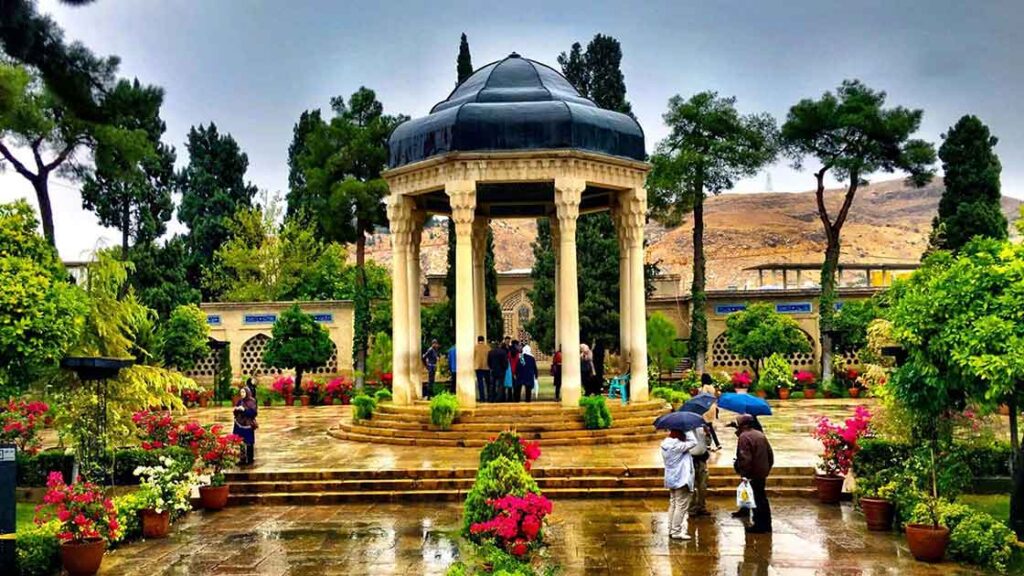Table of Contents
ToggleIntroduction: The Legacy of Hafez
Khwaja Shamsuddin Mohammad Hafiz Shirazi, celebrated as Hafez, remains an iconic figure in Persian poetry. His pen name, ‘Hafez’, meaning ‘memorizer’, signifies his remarkable achievement of memorizing the Quran, influenced heavily by his father’s teachings. He also imbibed the essence of Persian literary giants like Rumi, Nizami, and Sanai.

Early Life and Education
Born in 1385 in Shiraz into a devout Shia Muslim family, Hafez was immersed in religious studies, focusing on the Quran and other spiritual texts. His profound understanding of these teachings soon caught the attention of Shiraz’s rulers, who extended their patronage and respect to him.
The Heart of Hafez’s Poetry: Sufism
Sufism’s mystical and philosophical tenets form the core of Hafez’s poetry. Unlike his contemporaries, Hafez’s works were uniquely unstructured, a trait that set his poetic style apart. His poems, compiled in the “Divan Hafez,” delve deep into themes of love, divinity, and human connection with God, offering introspective insights into humanity.
Trials and Tribulations
Hafez’s journey was marked by adversity, particularly under Mobarez Mozaffar’s rule in Shiraz. His outspokenness in poetry led to his dismissal as a Quranic teacher, only to be reinstated by Shah Shuja after the latter’s ascent to power. Hafez’s tumultuous relationship with Shah Shoja saw him seeking refuge in self-imposed exile in Esfahan, a period that deeply influenced his poetry.
A Spiritual Awakening
At 60, Hafez embarked on a 40-day spiritual vigil, drawing himself into a circle of introspection and contemplation. This period culminated in a profound experience with his Master Attar, leading Hafez to a state of Cosmic Consciousness or God-Realization. His subsequent poetry, rich with spiritual authority, reflects this enlightenment.
The Final Years and Legacy
Hafez’s later years were spent back in Shiraz, where he continued to inspire through his teachings and poetry until his death in 1389. His final resting place in the Musalla Gardens, now known as Hafezieh, remains a testament to his enduring influence.
“Divan Hafez” in English: A Literary Treasure
The English compilation of Hafez’s work, the “Divan Hafez,” encompasses around 500 Ghazals, 42 Rubaiyees, and a few Ghaseedehs. Hafez’s unique approach to poetry, writing only when spiritually moved, resulted in profound compositions dedicated to the Beloved, capturing the essence of his mystical journey.
Conclusion: The Timeless Poet
Hafez’s contribution to Persian literature is immeasurable. His deep-rooted understanding of Sufism, coupled with his poetic prowess, has left an indelible mark on literature and continues to inspire and enlighten, transcending cultural and temporal boundaries.







One thought on “Popular Persian Poet Hafiz”